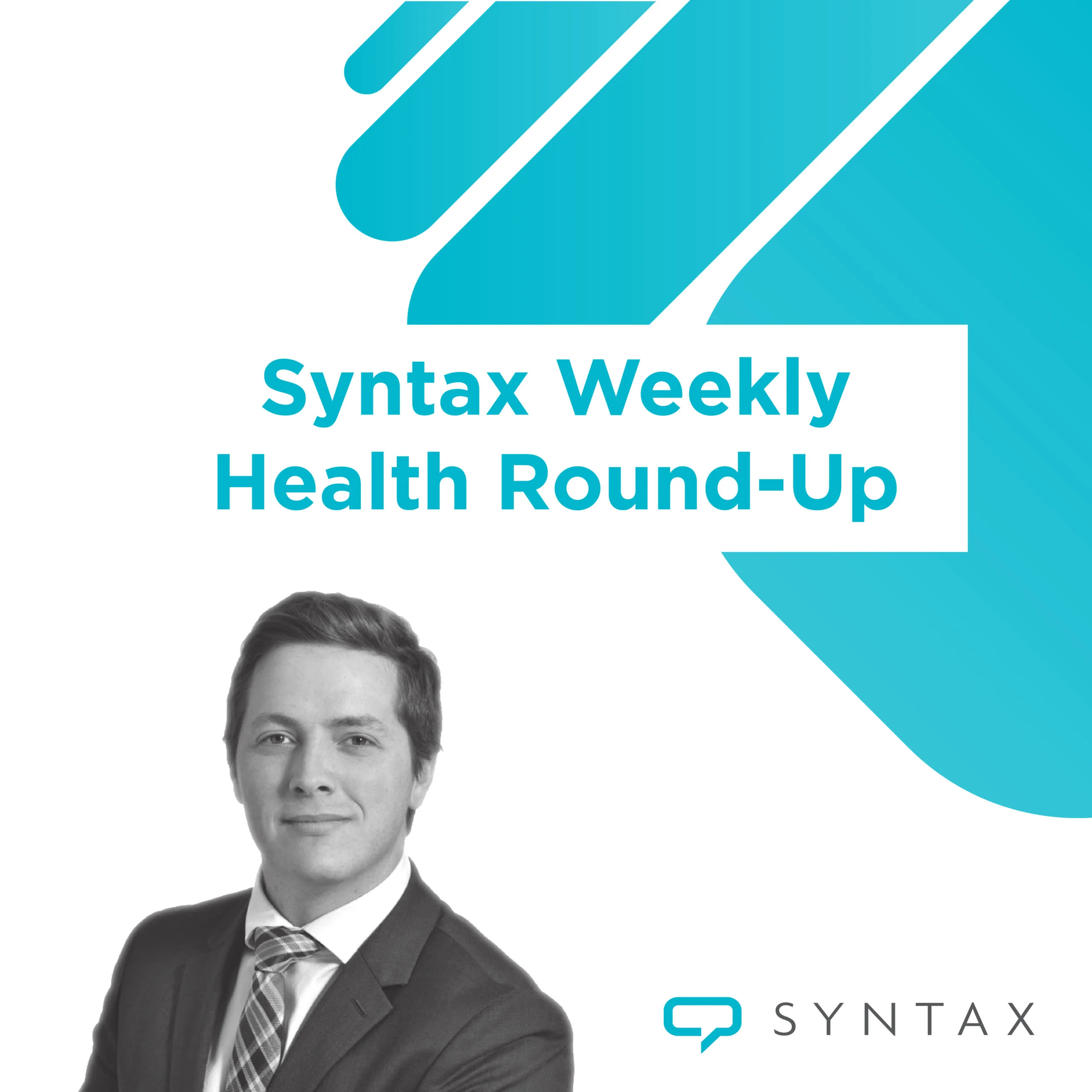Insights | Blog
Bilateral health funding agreement for Nova Scotia
Nova Scotia signs its bilateral agreement under the Canada Health Transfer and B.C. announces a new self-screening program to detect cervical cancer. On that, and more, here is your Syntax Weekly Health Round-Up.
On the Hill
- The House of Commons is on its holiday break until January 29, 2024.
Around Government
- In response to the U.S. Food and Drug Administration’s (FDA) approval of Florida's plan to import select Canadian prescription drugs in bulk, Health Canada issued a statement that it’s acting to safeguard Canada’s drug supply. This includes regulations that have been implemented to stop drugs intended for the Canadian market from being sold for consumption outside of Canada, of which Helath Canada stated it has reminded regulated parties of their obligations.
Around the Dominion
- The federal government and the Government of Nova Scotia announced a bilateral agreement of more than $355 million over the next three years, under the Canada Health Transfer. To access the funding, Nova Scotia submitted an action plan to detail how it plans to improve healthcare by:
- Increasing the percentage of its population with ‘regular access’ to a healthcare provider to 88 per cent
- Increasing the number of family physicians, nurse practitioners, and registered nurses
- Facilitating access to an individual’s health information, virtual health services, and appointment booking
- Increasing local graduates in mental health and addictions
- Enhancing access to mental health services
- Advancing Indigenous health priorities
- The Government of Newfoundland and Labrador announced a review of its long-term care and personal care home system to identify opportunities and recommendations to improve the quality of care and quality of life of residents, enhance staff engagement, and improve working conditions for staff. The review and its public consultation will be conducted by MNP.
- In Ontario, the government launched new youth wellness hubs in Sault Ste. Marie and in Sagamok Anishnawbek First Nation to better support youth between 12 and 25 in the communities and surrounding regions. The hubs, which are among 22 that have been launched across the province since 2020, will connect youth to convenient and free mental health, substance use, primary care, and traditional healing and wellness services in a safe, youth-friendly, welcoming space. For Indigenous youth, co-designed programs and spaces will ensure a culturally safe service and environment.
- In Manitoba, newly elected Premier Wab Kinew invited front-line health workers to participate in an online and in-person engagement process as part of a provincial listening tour. The Premier participated in an in-person conversation at St. Boniface Hospital, with plans for six additional in-person events over the year.
- In B.C., the government announced women will soon enjoy improved access to cervical cancer screening as a cervix self-screening program launches, including the option to screen at home. As of January 29, women and individuals from 25 to 69 with a cervix will be able to order a quick and easy test kit to use at home. An expansion of a pilot program launched in 2021, the self-administered HPV test means that patients can easily self-collect a sample at home or at their healthcare provider’s office.


